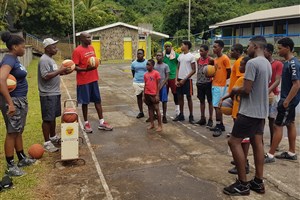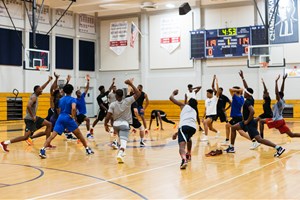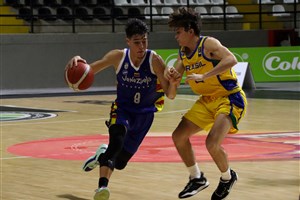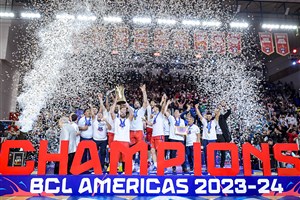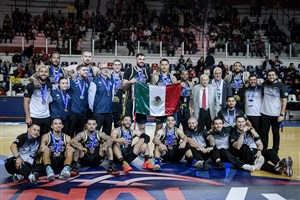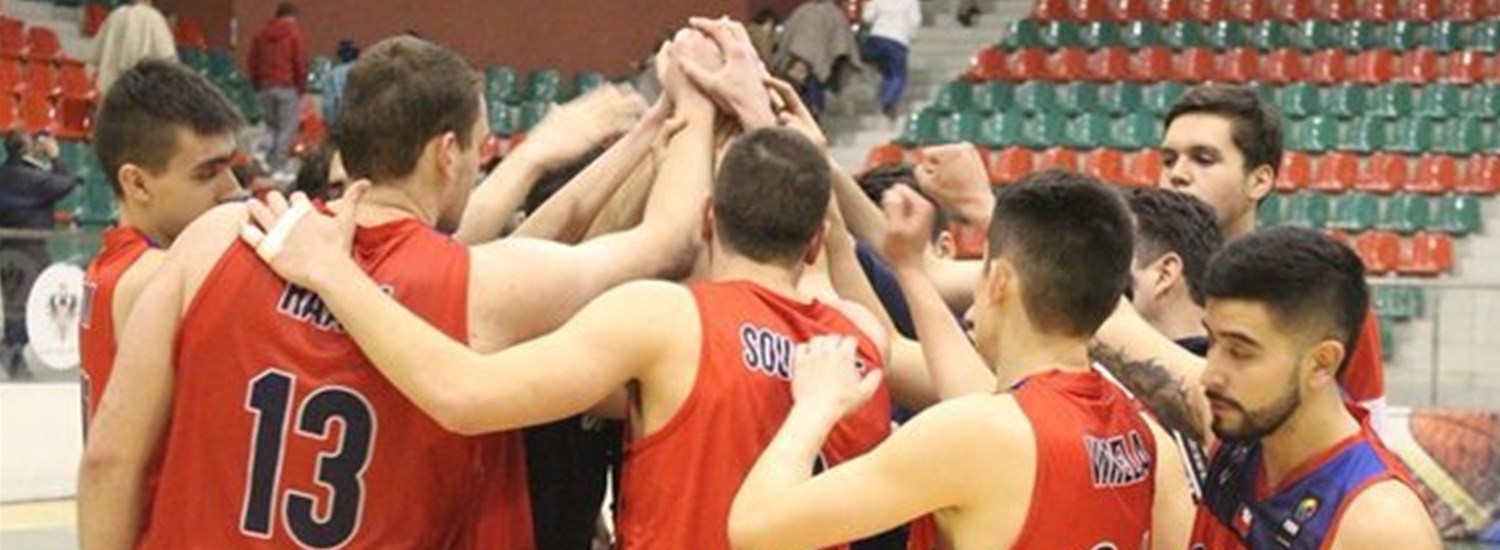
A hopeful bronze for the present and future of Chilean basketball
SANTIAGO (Chile) – A bronze medal is worth gold when everything's done to reach the goal. The Chilean Basketball Federation (FEBA Chile) focused on a group of young athletes, the promise of Chilean basketball – the U21 national team, to conquer two medals in the FIBA South American Championship in Tunja, Colombia, which took place from August 12 to 17.
The bronze evidences the work that started with the men's U17 gold in the 2017 South American Championship and was a breath of fresh air for the efforts toward the 2023 Pan American Games in Santiago.
The U21 National Team came back to Chile with two bronze medals in the 3x3 and 5x5, and the team was also chosen as the "Fair Play Team” of the competition by referees.
One of Chile's young prospects, Felipe Haase, was the best scorer of the competition, with 21.3 points per game. He plays in the NCAA for the Mercer Bears, a college team from Macon, Georgia, and in similar standing to South Carolina University – his previous team.
Besides from the 21-year-old and 6’8” player, this team has two other prospects playing in the United States: Marcelo Pérez in the University of Barry (NCAA) and Lino Sáez Layton at Christian Academy. Ignacio Arroyo, for his part, is part of Movistar Estudiantes, making him the first Chilean in Spain's ACB League, which is, for many, the second most important world basketball league after the NBA. Kevin Rubio plays in Quimsa AA and Ignacio Berríos In Boca Juniors – both in Argentina.
With the arrival of forward Haase (20 points and 12 rebounds), the U21 conquered the bronze medal in the category's South American Championship. His outstanding second half allowed the team to defeat Uruguay, 68-60, in the game for the third place of the tournament whose gold medal winners were Brazil and Argentina took home the silver.
This triumph also symbolized small revenge for the Chilean team after being defeated by Uruguay in the first edition of the U21 South American Championship in 2018.
“Last year, in the South American Championship in Salta, Argentina, we had planned to do something very good within our possibilities, since many players were overseas, but the schedule changes complicated things for us. This year we started to do things well and we were able to do it. We practiced for 10 days before traveling, we played three friendlies in Uruguay. We were in Bogotá five days before and in Tunja we did the last part,” said Argentine coach Daniel Frola, who’s in charge of the Chilean national teams.
Point guard Cristian Correa, who plays in Alemán de Puerto Varas, in Chile, was one of the players who shared his impressions after winning the bronze and valued the growth of basketball in his country. “We used to always struggle in the last places and now we're third. We've yet to win anything, so we must keep on working. In this tournament, we wanted to take it all. If we could win the gold medal, better. That didn’t happen, but this third place for Chile is very good.”
Along the third place in the 5x5 is also the bronze achieved in the 3x3, a team that featured Matías Lubiano, Gaspar Hernández, Sebastián Leefhelm, and Felipe Inyaco – who was chosen MVP.
“The Federation is doing things quite well with the players. The youngest ones have a longer process and the oldest is doing things that allow for a team cohesion that's noticeable in the court,” Frola assured.
Before conquering the bronze, FEBA Chile President Irán Arcos traveled with the team to the city of Bogotá six days before the start. This allowed the national team to prepare considering the height factor. The Colombian capital is over 2,630 meters above sea level.
“The first game was complicated against the locals, Colombia. They defended very well. Against Argentina we played more than three quarters at the best possible level, the result didn’t reflect the evenness of the game. Venezuela was the key game and we played very well against them with outstanding performances and a formidable attack. Against Brazil, we couldn't be in the game because of their high rate of three-pointers and they established a great point-difference. We prepared for the game against Uruguay and we had a great second quarter (40-24). We defended well and had more clarity to solve plays,” said the Argentine coach.
The national staff’s idea was for players to get physically ready to play in conditions like those in Tunja. The work in Bogotá by trainer Alejandro Urrutia and physical therapist Nicolás Cubillos was focused on finding a physical balance in the face of the effects of heights on the players’ bodies.
“This is very valuable to Chile. We always want more. This generation has several outstanding players. Chile now has many players overseas, which is positive for the overall development of players, because what needs improvement is the interior, the physical development, and many of them are already playing professionally and that doesn't go unnoticed. Basketball has been growing for some years now. It's a sport that isn’t too popular in our country, but with the growth of clubs and the Federation’s work we've been gaining respect in South America,” he pointed out.
FEBA Chile continues to put all its efforts toward continuing the formation in the South American nation. They organized the U16 Women's World Cup Qualifiers in Aysén and achieved to qualify to the FIBA U17 Women's World Cup 2020 in the game for the bronze. The Federation also placed three prospects in the Basketball Without Borders Camp organized by FIBA and the NBA Academy, as well as another Chilean promise in the Elite Camp of the FIBA Americas Youth Development Program. Now, the 3x3 and 5x5 bronze medals in the men's U21 are another addition to the great achievements this year by the Federation.
The next challenges for FEBA are the national U17 teams in the South American Championships. The men's team will host the event in Santiago, from October 28 to November 3 and will seek a new medal and an AmeriCup qualification. Meanwhile, the women will travel to Barranquilla, Colombia, for the event that’ll take place from November 4 to 10.
The women’s U17, led by coach Javiera Novión, will prepare in part in the US cities of Orlando and Chicago, from September 5 to 12. Meanwhile, the men’s team, who already had part of their training in Spain (in Madrid and Zaragoza) led by Argentine coach Frola, will continue to prepare in the Chilean capital city of Santiago.
FIBA

